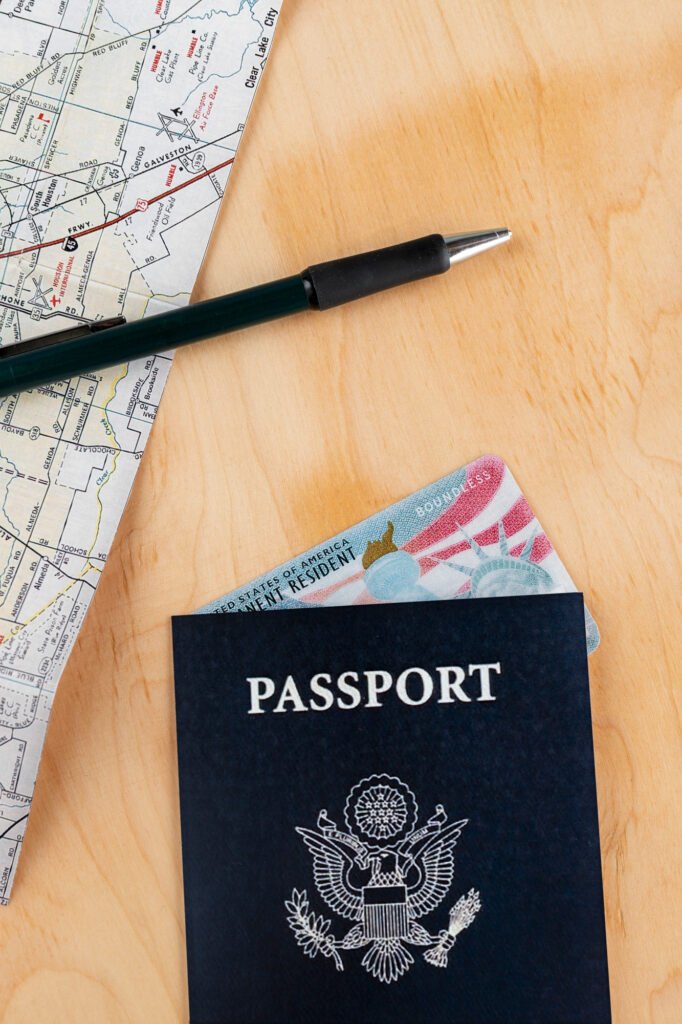Setting an eye on making plans to study abroad, you are signing up for an academically enriching experience that will be with you through out your life. While your dreams may glitter, do not forget your passport and your visa, that play the most important role in your international travel. So, you need to understand the key passport and visa differences for a smooth journey.

Key Passport and Visa Difference
Your Passport: A Global Identity

- Consider your passport to be your global identity. It is issued to citizens by the government of India.
- It functions as an official travel document that verifies your identity and allows you to travel from one country to another.
- It consists of your photo, biographical information, passport number, and expiry date.
- Usually, your passport is valid for 5 years (in the case of minors) and 10 years (for people above the age of 18). And it must be renewed after its expiration period.
- While you might not require a passport for domestic travel, you certainly do require it for all of your international travels.
Now if you do wish to enter an international country how do you do it? Here comes the visa.
The Visa: Your permission to enter, stay and study.

- The visa is an official document issued by a foreign embassy of the specific country you wish to enter and study in. Essentially it grants you the permission to enter your desired country.
- It is only valid for a particular period of time and the purpose of your travel.
- While there are different types of visa meant for different purposes, when you are applying for abroad studies, you will be issued with a student visa.
- You can renew or extend the visa throughout the period of your studies, as per your requirement.
- The visa application process typically involves submitting various documents, including your passport, acceptance letter from the university, proof of financial support, etc. You may also need to attend an interview at the embassy.
- The requirements and application processes for the visa can differ depending on the country and program duration. There might be separate visas for research, vocational training, or language courses.
A passport grants you permission to leave India, not necessarily enter another country. While a visa permits you to stay in a specific country for a designated purpose.
Key Takeaways for Indian Students
Now that you know some important passport and visa differences, here are some important takeaways:
- Plan for the future: If you do not already have a passport, start the application process as soon as possible, or if you do have a passport but it has expired, apply for its renewal. Don’t be tardy and wait till the last minute to apply for your passport or visa.
- Do your research thoroughly: Different countries have different visa requirements. Go through your specific country’s rules and regulations before you apply for your visa.
- Seek guidance: If you get stuck somewhere or face any confusion, feel free to consult with a reliable consultant, like On-Track Education or the embassy of your destination country.
Conclusion
Knowing these notable passport and visa differences is very crucial to move ahead in your study abroad journey. It is also important for you to familiarise yourself with the application process and what lies ahead of it to ensure a hassle-free journey.
By planning, gathering all the required documents and seeking help if and when needed, you will be able to navigate the entire visa application process with ease and will even be on your way to achieving your academic aspirations to the best of your abilities.
So, do not fear the process but attempt to understand it and take a leap of faith in yourself and your abilities! And if you get stuck, you can reach out to On Track Education for further guidance.

